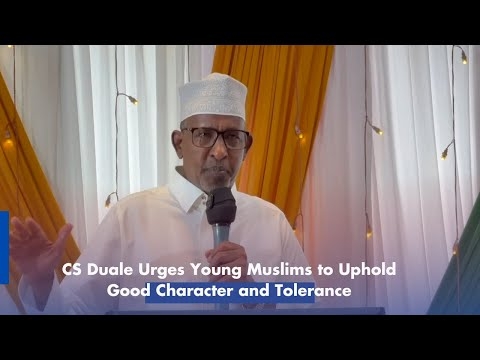“I run as President, not to oppose any man, but to propose the following new policies...” These words spoken by John Fitzgerald Kennedy during the campaigns for the presidency of the United States in 1960 pitting him against Richard Nixon still ring so true today.
Nixon on his part attacked Kennedy as a spoilt kid from a rich family, insensitive to the problems of the struggling majority. Kennedy ended up beating Nixon, becoming the 35th President of the United States of America at 43 years of age. Nixon was 47 years of age.
There have been growing murmurs among a section of the Luo over the purported dominance and stranglehold of Raila Odinga on the community.
These disgruntled voices have made allegations against the former Prime Minister. But these only seem to add to his popularity.
You win hearts and minds by articulating new policies and championing a particular cause, not by opposing a particular person. In politics, all publicity is good publicity. Parroting against the Odingas without articulating an alternative policy programme against that which he stands for will only continue to put him in the news.
The emerging ‘Luo Liberation Movement’ has so far demonstrated no alternative policy direction for the community. Its champions only talk about the status quo without offering a vision of the Luo Nation they want. Neither have they articulated issues at the national stage nor campaigned against issues that may have been considered as detrimental to the welfare of the people they seek to lead out of the alleged Odinga stranglehold.
Yet they have had opportunity, mostly due to Raila's benevolence, in various positions of power and influence. If they tried to articulate any issue, they have failed to gain the necessary traction, probably due to absence of vigour, energy, charisma, mojo or camaraderie, all of which Raila has and which probably could be the reason for their jealousy.
The ODM leader did not inherit the position of influence he holds. In fact, his own father Jaramogi Oginga did not hand over the mantle of leadership to him on a silver platter. History has it that his father would have preferred somebody else to lead the Luo-speaking people.
But Raila identified specific problems and championed their solutions or campaigned against them in private and in public. He developed those issues into policies and mobilised human, technical and financial resources to make them register in the people’s minds. He was ready to pay the ultimate price to ensure policy issues that were of interest to the people were pushed forward.
Some of the problems that Raila have fought against, instead of fighting against individuals, included the concentration of resources at the national level, the skewed appointment of commissioners to the electoral body, the one-party system that he opposed leading to the multiparty era we currently enjoy and the crowded housing situation in Nairobi slums in 2003 which led to the new housing projects that successive governments have built on.
Raila did not undertake these huge programmes alone but he built his brand around issues affecting the people, not just abusing other personalities. That is how he even beat President Kibaki in the 2005 referendum. Kibaki was only a victim of Raila’s campaign against specific issues.
Those seeking to lead the Luo Nation, or any other nation for that matter, will need to propose new policies. The issues bedevilling the people are numerous. From perennial droughts in Northeastern to floods in Kano Plains, unsustainable debts, corruption, gender-based violence and lack of gender parity. The absence of leadership on these matters cries out so loud.
So, the next time Raila crystalises these problems anew and proposes a roadmap for addressing them, in the shape of the Building Bridges Initiative, Okoa Kenya, Azimio Kenya or any other form, the people who will be the ultimate beneficiaries will still harken to the voice of the enigma of Kenya’s politics.
When that happens, they will not listen to any other voice but his, again.
But any other voice can identify the issues that bedevil the people, like the need for ward development fund or the much-needed economic reforms in the counties, or even electoral reforms for better political party nominations and a general election in 2027.
People will slowly leave Raila and harken to this new voice. People follow Raila for his initiatives, not his beauty. The belief that you can only rise by bringing others down is archaic, mundane and defeatist.
Strategy, leadership and development consultant based in Siaya. [email protected]










![[PHOTOS] Elgeyo Marakwet landslide victims arrive in Eldoret for care](/_next/image?url=https%3A%2F%2Fcdn.radioafrica.digital%2Fimage%2F2025%2F11%2F425460d9-7ff1-4975-8a1f-cd0aaefb7812.jpg&w=3840&q=100)

